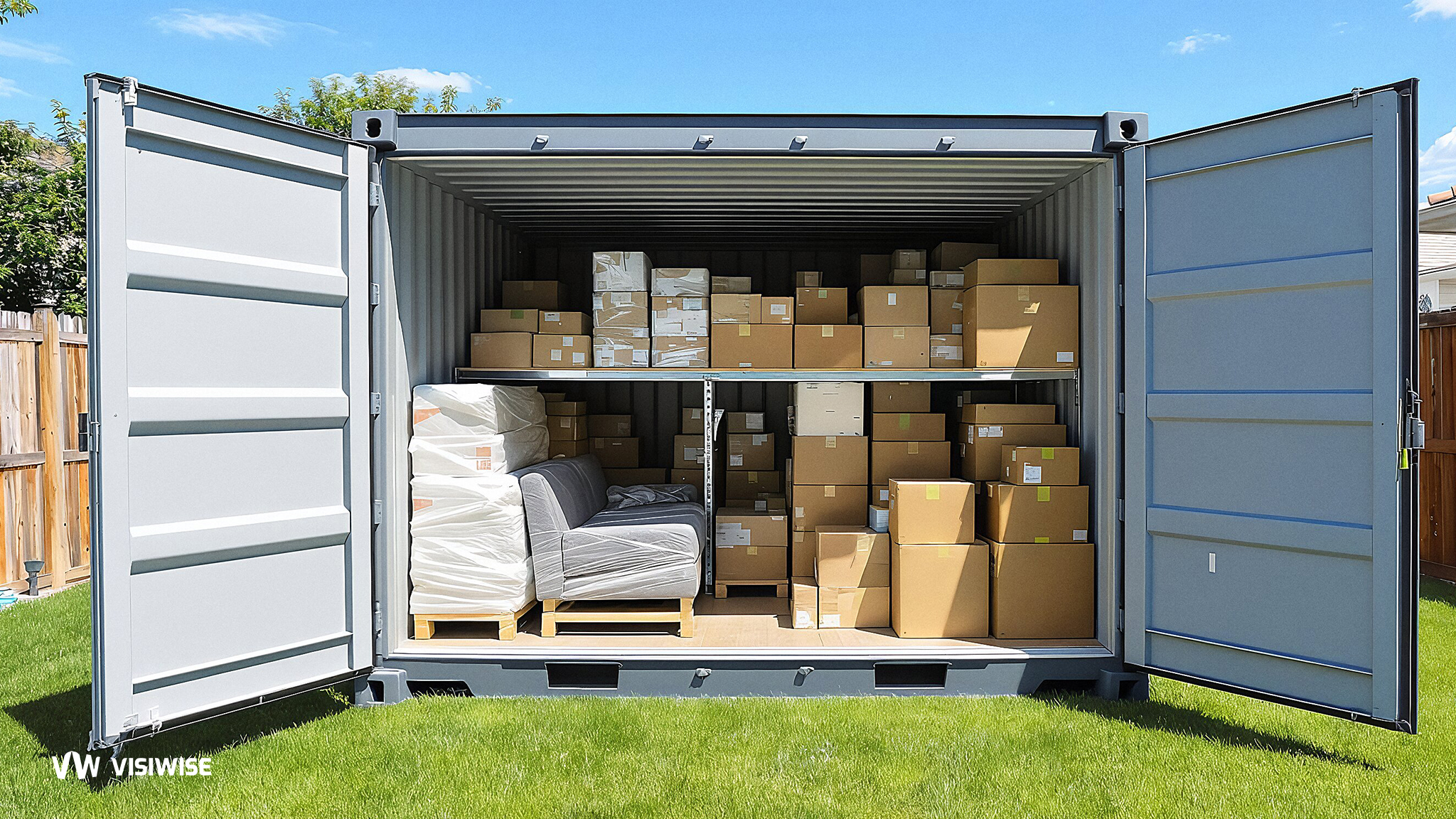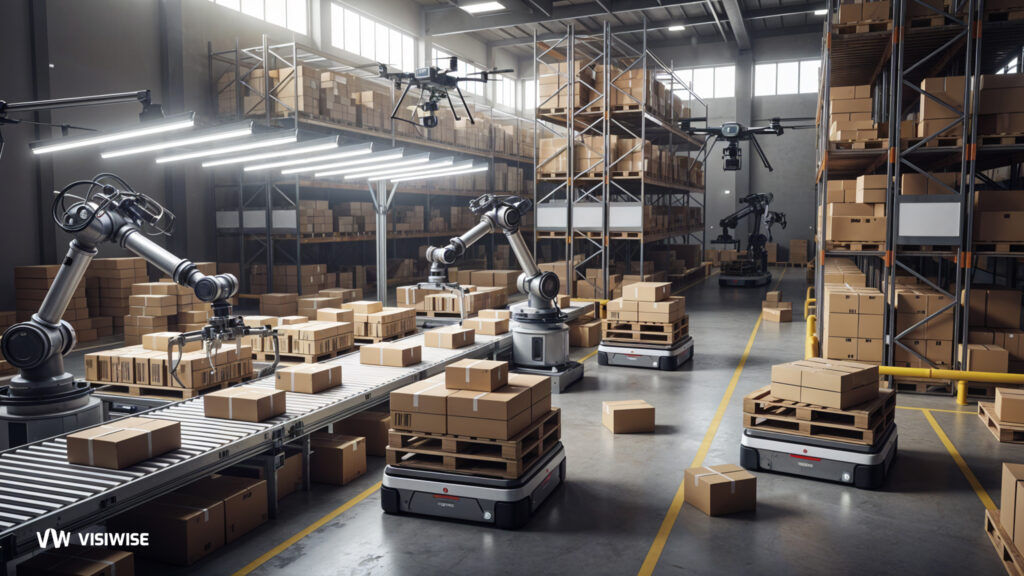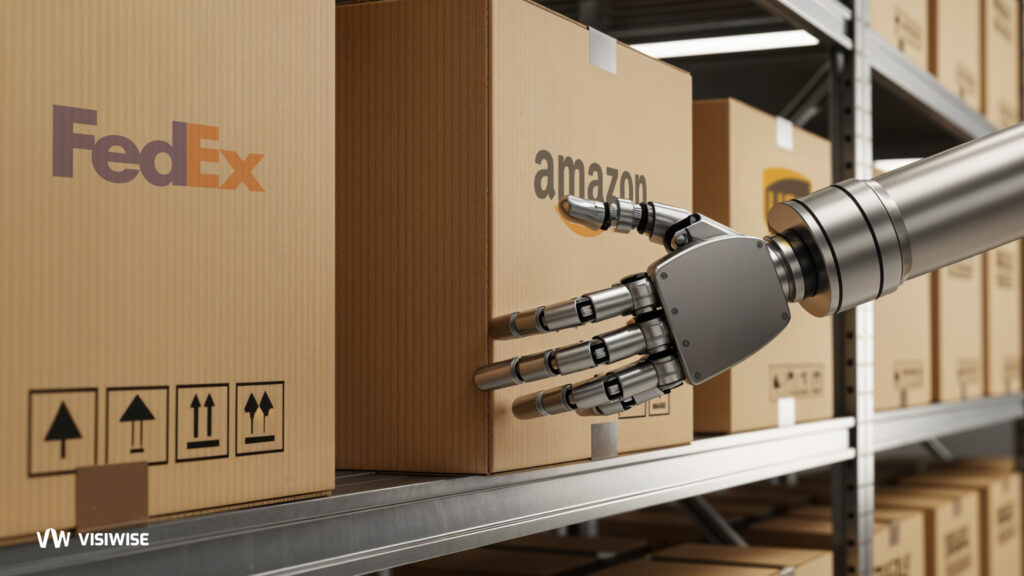These days, everyone seems to need extra space—whether it’s for household clutter, business inventory that won’t fit in the back room, or equipment piling up at the office.
The good news? You’ve got options. From heavy-duty shipping containers to convenient self-storage facilities and flexible portable units, there’s a storage solution to match just about any situation.
In this guide we help you to decide to choose best options without the headache.
Shipping Containers VS Traditional Storage Units
Introduction to Shipping Containers as Storage
Everyone has seen shipping containers, either on the back of a train, on container ships, or even sitting in industrial parks for convenient, tough storage. There’s no arguing with the durability and strength of shipping containers, used all over the world for storage and transport. They’re able to withstand the elements with ease, can be securely locked, and can be moved around for convenient relocation of their contents.
Introduction to Traditional Storage Units
Unlike shipping containers that are designed to be frequently moved around and transported through tough conditions, storage units are permanent structures that offer fixed, rented storage space. Storage units are ideal for people who need to store fragile items or a large number of belongings that need a high level of security and can ‘set and forget’ knowing their items are secure long term.
Cost Breakdown: Which Option Is More Economical?
Initial Investment
This is where shipping container cost benefits exceed storage units, as a shipping container is an asset that once purchased you have no further fees, and when it is no longer needed can be resold or repurposed. While the upfront cost may be high, if you’re storing items for years at a time, this cost can be negligible compared to monthly storage unit fees.
Savings Over Time
This is where shipping container cost benefits exceed storage units, as a shipping container is an asset that once purchased you have no further fees, and when it is no longer needed can be resold or repurposed. While the upfront cost may be high, if you’re storing items for years at a time, this cost can be negligible compared to monthly storage unit fees.
Hidden Expenses
This is where you can get caught out if you don’t do your research, as both options can have hidden costs you may not have considered. Storage units can have additional access fees, hidden charges, or insurance costs that you will want to budget for, whereas shipping containers can often come with significant transport costs, or ongoing maintenance costs if you need them to be powered or air-conditioned.
Flexibility and On-Demand Access
Access Anytime or Facility Hours? Comparing Accessibility
When it comes to accessing the items you need, there’s one clear winner between self-storage vs container storage. Owned shipping containers stay on your property, giving you round-the-clock access whenever needed. Traditional storage units typically restrict access to business hours only, limiting when you can retrieve your items.
Portability Showdown: Which Storage Option Moves with You?
Clearly there’s only one option for portability; shipping containers. Unless you want to go to the hassle of shifting all your belongings yourself from one storage unit to another, being able to simply pick up a shipping container and move it on a truck makes its portability unbeatable.
Structural Resilience Over Time
Weather Resistance Face-Off
While both options are built to withstand the weather, when it comes to shipping containers vs storage units in harsh conditions, shipping containers are the better choice. Designed to handle extreme weather as well as potential damage from moving around at rough seas on a ship, shipping containers are built to handle the worst conditions and keep your belongings safe.
Upkeep Matters: Comparing Maintenance Demands
In terms of upkeep, shipping containers are very much a case of pick a place to drop them and they’ll sit there without any further maintenance needed. Storage units on the other hand are susceptible to similar risks to any other building—fire, natural disasters, theft—so opting for a company that focuses on maintenance is key.
Choosing Between Storage Units and Shipping Containers
When Storage Units Make Sense
If you need to store a few items while you’re moving, or need to empty out a building for renovations, or even need some overflow space for inventory, storage units are a great choice. They excel at offering affordable, minimal, temporary storage where security is high and costs are low.
When Shipping Containers Are the Better Fit
For long-term storage of bulk items, or equipment you may not need access to very often, shipping containers are king. They offer flexible, secure storage that can be relocated easily and once purchased can do the job without intervention or further costs.
The Long-Term Cost Benefits of Shipping Containers
No Monthly Fees: Save More Over Time
The longer you keep a shipping container, the more you end up saving vs a storage unit, as you aren’t paying a monthly rental fee. You can also recoup some of your upfront costs by selling your container at the end, further reducing the cost over time.
Resale Value and Repurposing Potential
One of the best features of a shipping container is its ability to hold its value over time, with containers reselling for close to retail price if the condition is high. Containers can also be repurposed for many different uses, such as site sheds and even tiny homes.
Scalable Storage: Adapt to Growing Needs
While upfront costs can be higher with shipping containers, being able to scale up your storage by purchasing more containers is a great option for adapting your storage capacity to your needs. Storage facilities can sometimes be limited based on how many customers are using the units, so purchasing more containers is an almost limitless option.
Creative Ways to Use Shipping Containers for Storage
1. Backyard Storage Shed: Practical Outdoor Space
One of the most well-known ways for a homeowner to use a shipping container is for a storage shed. If your home doesn’t automatically come with backyard storage of some kind, it can come in incredibly handy. Here are some home items you can easily store in your backyard shipping unit:
- Lawn mower
- Leaf blower
- Snow blower
- Weed trimmer
- Rakes and shovels
- Power washer
On top of all these tools, you can also store extra sport or hobby equipment. Maybe you have some golf clubs, fishing poles, or small boats you want to keep out of the elements. Regardless of what you want to store, you’ll have the space to do it with a shipping container.
2. Workshop and Tool Shed: Extra Space for Your Projects
If you don’t have a garage or need extra space for a workshop or tools, a shipping container is a great option. You can easily store tools for your vehicles, work benches, extra lumber, and even firewood for campfires or your indoor fireplace. Whatever you need to store, you’ll have the necessary space. With such a spacious unit, you won’t find yourself lacking. The best part is that you get to use your garage for your car again.
3. Overflow Storage: Convenient Space for Extra Belongings
Maybe you have a kid that just went off to college, you have kids or parents that have moved in with you, or maybe you simply have too much stuff. Either way, if you need extra storage for clothes, furniture, pool or spa assembly, or anything else, a shipping container is the best solution. With this easy storage solution, there’s no setup involved, and it’ll keep your belongings protected from the weather.
4. Creative Living Spaces: Man Caves, She-Sheds, and Guest Rooms
Do you have an old bed or couch set but no room to put it in your house? You can easily create extra space in your home by transferring your extras to a storage unit. From there, you can create a man cave, she-shed, or book nook.
Add doors, windows, and battery-powered lights for brightness. Decorate to suit your style with rugs, paint, and decor for a cozy feel. Use it seasonally or insulate for year-round comfort. Enjoy your private retreat while freeing up room in your main home.
5. Vehicle Storage: Affordable and Secure Parking Solution
One of the surprisingly useful things you can use a shipping container for is storing vehicles. With a sizing of 8 feet tall and wide with a length of 20 or more feet, it’s ideal for fitting a vehicle or two. Extra-large shipping containers provide the perfect vehicle storage solution at a fraction of garage construction costs – easily accommodating cars, trucks, ATVs, and more while offering secure steel protection for about 80% less than the average $10,000 price tag for building a traditional garage. Meanwhile, you can spend a fraction of that on a shipping container, skip the build time, and have space for two cars. It should be noted that containers make better long-term storage instead of everyday garage usage as they are narrow for opening and closing the doors on a regular basis.
What Shipping Container Size You Need
Choosing the right shipping container size depends on your storage needs and available space. Here’s a breakdown of the most common container sizes:
1. 10ft Container
A small 10ft shipping container is perfect for household items and select pieces of furniture. People often use these smaller shipping containers for storage in business.
In addition, gardeners and construction workers can use them to keep their tools safe. The smaller size results in much lower transport and delivery costs.
2. 20ft Containers
This size will equate to a single garage, so you can store a car alongside a few household items. Twenty-foot shipping containers for storage are also excellent options for motorbikes. A 20ft container is ideal if you are a small business looking to store excess stock. Or, a small family relocating.
We often see 20ft containers used in schools or event spaces for surplus chairs, tables, props, and equipment. They can hold between four to six rooms worth of belongings.
3. 40ft Container
Long or high-cube 40ft shipping containers are ideal for business storage or customized living spaces. For example, you can fit desks and computers for a medium business into one container.
You can also store items from a detached three-bedroom family home in a 40ft container. Knowing that these items are safe will make your relocation or renovation stress-free.
Key Considerations Before Installing a Shipping Container: Site Prep, Access & More
1. Site Selection
If you are not mounting the container for the long term, choose a spot where the ground is even and the soil firm and compacted so that it will support the frame of the container. If your site is rough or slanted, you can add a layer of gravel or small stones to keep the container stable and secure.
2. Surroundings
If your container is going to remain in place for a length of time, it can be valuable to pave the surrounding area prior to installation. This will provide a solid firm base for your structure and will enable you to utilize the outer area of the container more easily.
3. Vehicle Access
If your site is in a position behind other buildings, then you may have trouble getting your container to your site. There are options to have your container dropped in situ by a crane, but this is expensive. If your site is accessible by vehicle, you will keep delivery costs down. Setting up storage containers in Sydney, where the topography varies, it is a great idea to prepare a level area prior to delivery.
4. Weather Conditions
It is ideal to have your container delivered on a day free of rain, after a dry spell. Installing your container directly onto sodden earth may lead to sinkage and misalignment of your final structure. If you are in a particularly rough area, you may need to secure your shipping container to the ground, but in most circumstances, the natural weight of the container will hold it firmly in place.
5. Ventilation
If you are concerned about water or drainage around the site of your container, then it may be worthwhile setting the container down on concrete blocks. This will keep it raised from ground level, free of moisture, and well ventilated.
Wrap-up
Self-storage units offer versatile options, A shipping container gives you secure, adaptable storagethat works as hard as you do. With simple setup and basic care, it becomes a dependable storage partner that stands ready whenever you need it – season after season.



